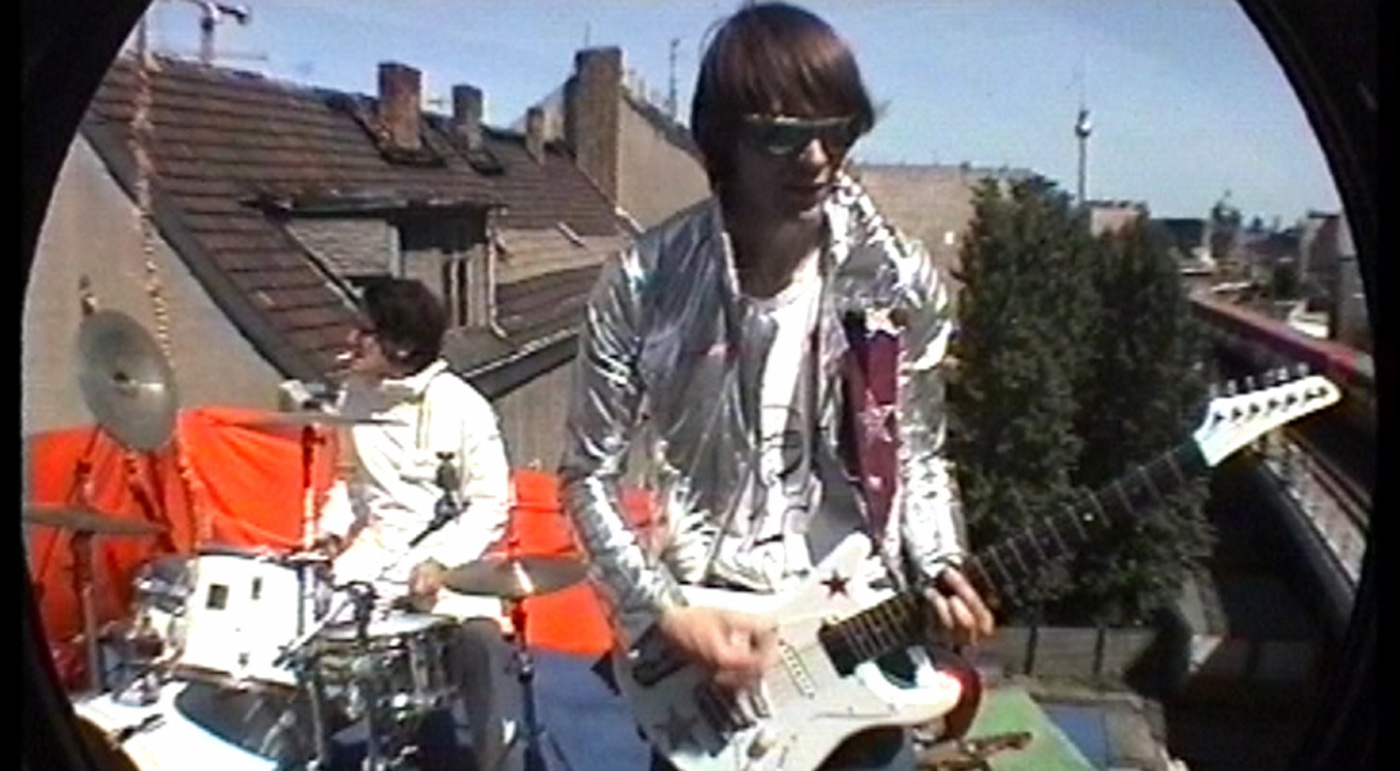Berlin in den 90ern: Neben den großen politischen Umbrüchen und der kommerzialisierten Technokultur prägte auch ein heute eher vergessenes Paralleluniversum das Lebensgefühl der Stadt: Die Welt der Kellerbars und Hinterhof-Kreativen.
In den freien Häusern und Wohnungen in Berlin-Mitte zelebrierte nach dem Fall der Mauer eine Szene sehr verschiedener junger Menschen eine unbekümmerte Freiheit. Ob ein Projekt zukunftsträchtig war oder nicht – egal, man lebte von einem Event zum nächsten Experiment und betrieb die Ent-Etablierung von Kunst und Markt ganz spielerisch.
Der Film »Berlinized« beschreibt dieses spezielle Lebensgefühl in einer reflexiven Zeitreise in das Berlin-Mitte der 90er Jahre. Der Filmemacher Lucian Busse, selbst ein aktiver Protagonist jener Zeit, dokumentierte mit seiner Kamera den Wandel der Stadt, die Kunstszene, Clubs, Konzerte und die Baustellen, wo die Freiräume mit immer neuen unpersönlichen Bürogebäuden gefüllt wurden.
After the Wall fell, a lively and very motley scene of young people used the vacant houses and apartments in Berlin-Mitte as a stage for living and celebrating their sense of easygoing freedom. Long-term success was not an important category – people lived their lives from one event to the next experiment, playfully de-establishing art and its market imperatives.
The film „Berlinized“ takes you on a tour to 1990s’ Berlin-Mitte, both capturing and reflecting on this very unique feeling at a certain place in time. Filmmaker Lucian Busse, an active protagonist of this era, took his camera everywhere to document the changing cityscape, the art scene, clubs, concerts, and also the many construction sites where free space was filled up with ever-new, ever-the-same, faceless office buildings.
The film is inspired not so much by melancholy longing for times past, but by a perspective that draws the connection to the Here and Now. Lucian Busse searched for the protagonists from back then – and found them. In interviews, they describe their current view on the 1990s: how did the creative impulses and experiences during this short window of temporary freedom shape their lives? And how much of that freedom can still be found in the relatively neat and tidy Berlin of today?
